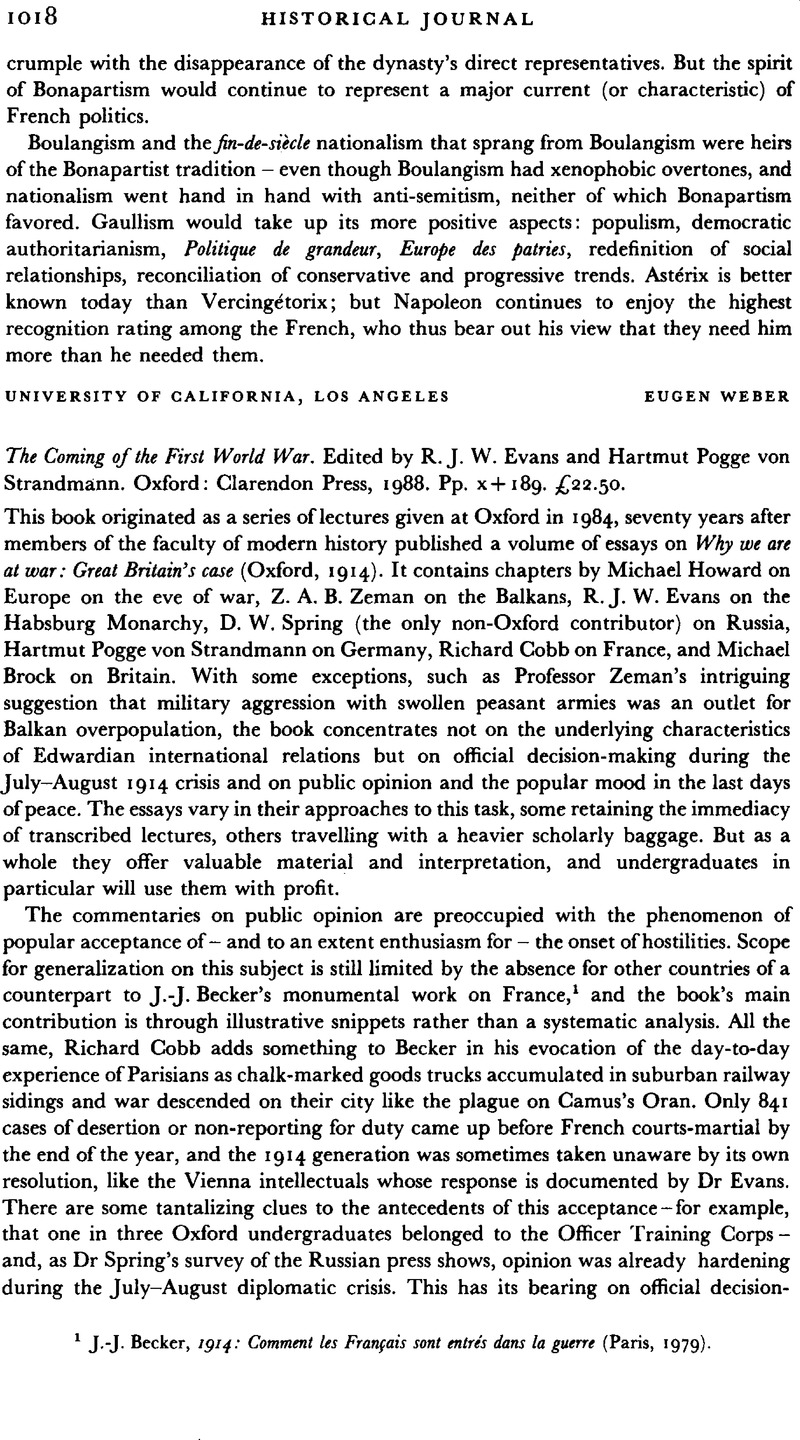No CrossRef data available.
Article contents
The Coming of the First World War. Edited by R. J. W. Evans and Hartmut Pogge von Strandmann. Oxford: Clarendon Press, 1988. Pp. x+189. £22.50.
Published online by Cambridge University Press: 11 February 2009
Abstract

- Type
- Other Reviews
- Information
- Copyright
- Copyright © Cambridge University Press 1989
References
1 Becker, J.-J., 1914: Comments les Français sonts entrés dans la guerre (Paris, 1979)Google Scholar .
2 The reader wishing to pursue this should compare the quotations in Pogge von Strandmann, pp. 115–16 with their context in Hoyos's memorandum, printed in Fellner's, F. chapter on ‘Die “Mission Hoyos”’ in Alff, W. (ed.), Deutschlands Sonderung von Europa, 1862–1945 (Frankfurt-am Main, 1984), pp. 283–316, esp. pp. 311–16Google Scholar. Hoyos himself (ibid. p. 315) rejects the notion that the Germans used the Austro-Serb conflict as the ‘backdoor’ (Umweg) to a European war of conquest, concluding rather that ‘They advised us to attack Serbia in the hope that this action could be localized but also in the conviction that if a European war resulted this extreme solution was preferable to a weak submission (schwächlichen Zurückweichen) by Austria-Hungary in the face of the Serbian threat’.


